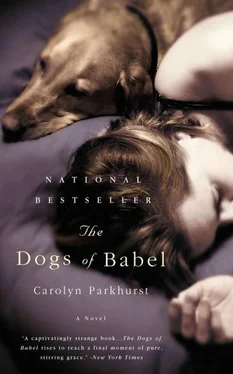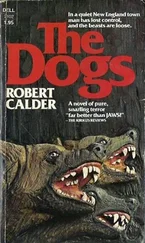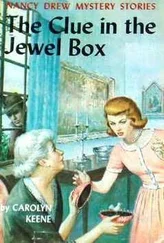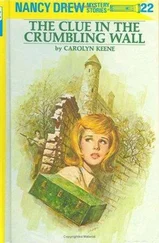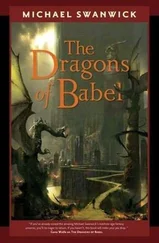Carolyn Parkhurst - The Dogs of Babel
Здесь есть возможность читать онлайн «Carolyn Parkhurst - The Dogs of Babel» весь текст электронной книги совершенно бесплатно (целиком полную версию без сокращений). В некоторых случаях можно слушать аудио, скачать через торрент в формате fb2 и присутствует краткое содержание. Город: New York, Год выпуска: 2003, ISBN: 2003, Издательство: Little, Brown and Company, Жанр: Детектив, на английском языке. Описание произведения, (предисловие) а так же отзывы посетителей доступны на портале библиотеки ЛибКат.
- Название:The Dogs of Babel
- Автор:
- Издательство:Little, Brown and Company
- Жанр:
- Год:2003
- Город:New York
- ISBN:978-0-7595-2806-2
- Рейтинг книги:3 / 5. Голосов: 1
-
Избранное:Добавить в избранное
- Отзывы:
-
Ваша оценка:
- 60
- 1
- 2
- 3
- 4
- 5
The Dogs of Babel: краткое содержание, описание и аннотация
Предлагаем к чтению аннотацию, описание, краткое содержание или предисловие (зависит от того, что написал сам автор книги «The Dogs of Babel»). Если вы не нашли необходимую информацию о книге — напишите в комментариях, мы постараемся отыскать её.
The Dogs of Babel — читать онлайн бесплатно полную книгу (весь текст) целиком
Ниже представлен текст книги, разбитый по страницам. Система сохранения места последней прочитанной страницы, позволяет с удобством читать онлайн бесплатно книгу «The Dogs of Babel», без необходимости каждый раз заново искать на чём Вы остановились. Поставьте закладку, и сможете в любой момент перейти на страницу, на которой закончили чтение.
Интервал:
Закладка:
So you can see I have been working; my desk is littered with the reading I have done, the tangents I have been willing to follow. But as I sit here, sifting through the paper, with Lorelei lying at my feet as inscrutable as ever, I realize that I have no idea where to begin.
I suppose the first step in teaching a dog to speak might be to teach her to “speak.” That is, to teach her to bark on command in the parlor trick usually referred to as “speaking.” I get a biscuit and call Lorelei over to me.
“Sit,” I say, and she does.
“Speak.” She just looks at me. “Speak,” I say again. Uncertainly, she lies down.
“Up, up,” I say. She stands.
“Good girl. Now sit.” We’re back to the beginning. She stares at me intently, her nose twitching at the nearness of the biscuit I hold. She sneaks a glance at the treat; hasn’t she already performed several tricks?
“Speak,” I say firmly. Then I start to bark at her. “Rrr, ruff!” I say, staring into her eyes. “Ruff, ruff! Speak! Ruff, ruff!”
Lorelei cocks her head to the side. This is unprecedented behavior on my part. Never before have I gotten down on the floor and barked at her. She waits to see what I’ll do next.
“Speak, girl!” I say, pulling my face closer to hers. Our noses are almost touching. “Grr,” I say, staring into her eyes. “Ruff! Ruff!” I’m nearly shouting. Finally, it works. Lorelei lets out a noise, not quite a bark, not quite a whine. It sounds, more than anything, like an expression of frustration— When the hell do I get the biscuit? —but it’s progress.
“Good girl!” I say effusively. I break the biscuit in two and give her half. She settles down to gnaw on it. I wait until she’s finished, then urge her back into a sitting position. I show her the other half of the biscuit. “Speak!” I say. “Ruff, ruff!” This time she gives a full-throated bark, and then another. “Good dog,” I say, “good speak!” I hold out the other piece of biscuit, but she ignores it. She stares into my eyes, her brow furrowed, and continues barking.
“Okay, now, good girl, quiet,” I say. I pull away slowly, sliding back on the carpet, still sitting. “Quiet now!”
Lorelei stands up, drawing herself to her full height. She has to lean down to continue barking in my face.
“Good girl,” I say soothingly. She’s making me nervous. I stand up; my books have told me that in situations like this I need to assert my position as alpha male. “Quiet,” I say more firmly. She looks up at me searchingly and barks again. She’s less aggressive now, but I can’t get her to stop. I reach out and gingerly pat her head. “Do you want a cookie? Nice dog, nice cookie.” Finally, she takes the biscuit. She retreats to a corner of the room, where she drops it on the floor and pretends to bury it, using her nose to draw the folds of the carpet over the biscuit.
“Good girl,” I call from across the room. I sink down on the sofa and watch her concentration as she goes about her task. I pick up my notebook. “Taught Lorelei the command Speak,” I write. “Results inconclusive.” I lean back and close my eyes. Across the room, Lorelei picks up her biscuit and takes it into a different corner to start over again.
SEVEN
Ibecame a linguist in part because words have failed me all my life. I was born tongue-tied in the most literal sense: the tissue connecting my tongue to the floor of my mouth was short and thick, limiting lingual movement. It’s a common enough condition; the doctor simply snipped the membrane in the delivery room, and I grew to speak like any normal child, with no lingering impediments. But the image stays with me as a kind of metaphor for all my subsequent dealings with language: I was born with a tongue not meant for speaking, and despite all artificial attempts to loosen it, it has stayed stuck in place at every important moment of my life.
But that first day with Lexy, I found I had plenty to say. Waiting in line to congratulate the bride and groom, radiant now in their own faces, for they had taken off their masks to kiss after all, I chatted with the other guests, happily introducing Lexy as the one who had made all the day’s magic possible.
By the time we got through the receiving line, it was as if we were already a couple. As word spread that Lexy was the creator of the masks, a crowd formed around us, encircling us with such admiration and excitement that anyone looking on might have thought that we, and not Brittany and Todd, were the newlyweds. With my hand resting on the small of Lexy’s back, I took on the role of proud partner and promoter, bragging about her work and allowing her to play the humble artist, basking shyly in the praise. Flushed and smiling, she answered questions about technique and inspiration and gave her business card to those who asked for it, art collectors and fairy-tale enthusiasts and people who liked to throw elaborate Halloween parties.
As the crowd around us thinned, Lexy squeezed my arm. “Thanks,” she said. “You’re good at that.”
“Thanks,” I said. “But I should tell you, I’m not usually so suave. It must be the mask.”
“Oh, I don’t know,” she said. “You were pretty suave with the square eggs. Those square eggs swept me off my feet.”
“I’ll bet those words have never been spoken before, in all the centuries of human language.”
“Here’s another one: ‘Why don’t you help me get this dog off my face so you can kiss me?’”
“Oh, I’m sure someone must’ve used that line before,” I said. “In fact, I believe it appeared in the first draft of the balcony scene from Romeo and Juliet. ”
But she was already kissing me.
“Let’s get out of here,” I said when we pulled apart.
“Very suave,” she said. Hand in hand, we walked through the grass, past the crowds of dragons and princesses holding champagne flutes, of bunny rabbits dancing with demons, back to the real world of the car and the tall grass and the long, dusty road.
“So where to?” I asked Lexy, once we were settled in the car. “Maybe something more first-datey? Dinner, a movie, awkward conversation at a coffeehouse?”
She leaned back against the headrest, seeming to examine the ceiling. “Hmm,” she said. “Let’s see. Have you ever been to Disney World?”
“Disney World,” I repeated. I should mention here that we were somewhere in suburban Virginia. Still, I pretended to consider it. “No, I can’t say that I have.”
Of course I hadn’t been to Disney World. Disney World, the one in Florida, didn’t even exist when I was a kid—I think I was fifteen or sixteen when it opened—and in any case, my parents never had enough money to take us on extravagant vacations. And as an adult, it had never occurred to me. When Maura and I went away, it was to cities—London, Rome, Athens. We both had a taste for ruins. Maura liked vacations that could be meted out into days just full enough and meals just sophisticated enough to leave us tired and sated when we returned to our hotel at night. On our honeymoon, we went to a Caribbean resort, and the sandy, sunny emptiness of each day drove her nearly crazy. We’d settle on the beach with a book for me and a straw bag full of novels, magazines, and crossword puzzles for her, and within twenty minutes, she’d get up to take a walk in the sand, dip herself briefly in the ocean, and retreat into the air-conditioning to have a piña colada in the dark bar, ignoring the man in the flowered shirt who hovered near us on the beach for the very purpose of bringing us frothy drinks. I knew without asking that the idea of spinning around in a giant teacup and shaking hands with a grown-up dressed up as a mouse would not have appealed to her. So, no, I had never been to Disney World.
Читать дальшеИнтервал:
Закладка:
Похожие книги на «The Dogs of Babel»
Представляем Вашему вниманию похожие книги на «The Dogs of Babel» списком для выбора. Мы отобрали схожую по названию и смыслу литературу в надежде предоставить читателям больше вариантов отыскать новые, интересные, ещё непрочитанные произведения.
Обсуждение, отзывы о книге «The Dogs of Babel» и просто собственные мнения читателей. Оставьте ваши комментарии, напишите, что Вы думаете о произведении, его смысле или главных героях. Укажите что конкретно понравилось, а что нет, и почему Вы так считаете.
